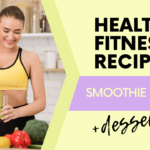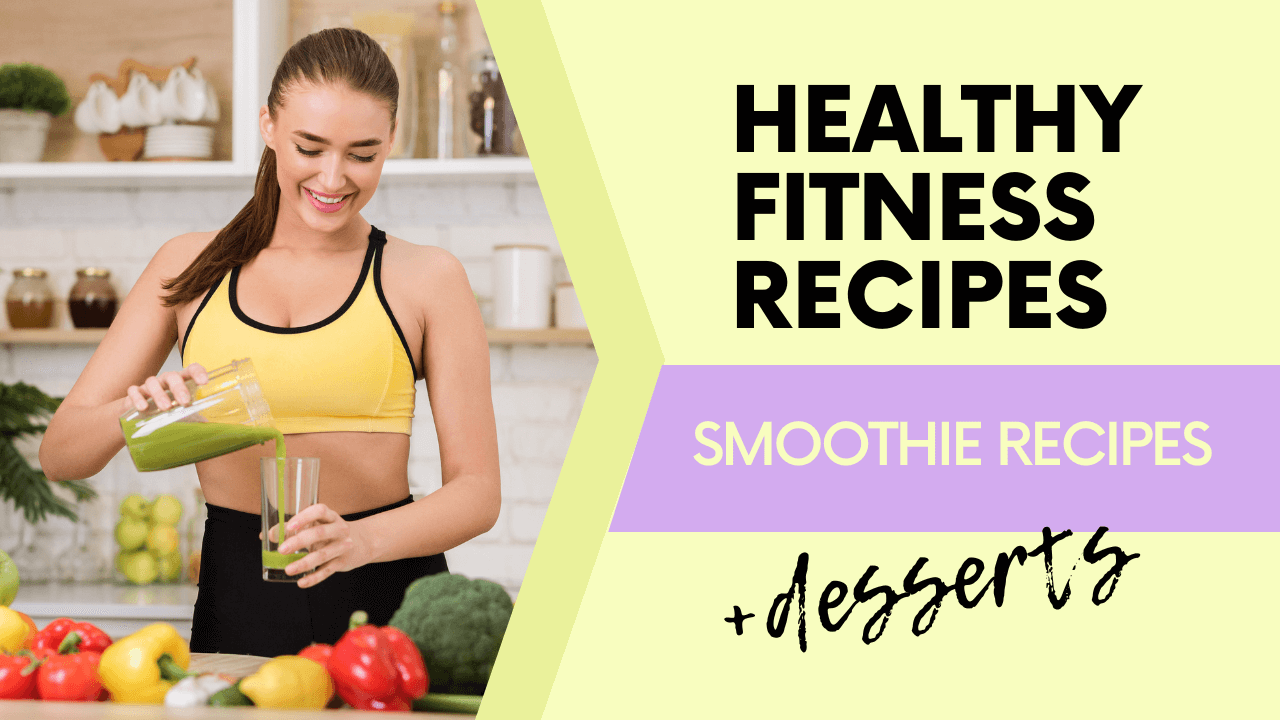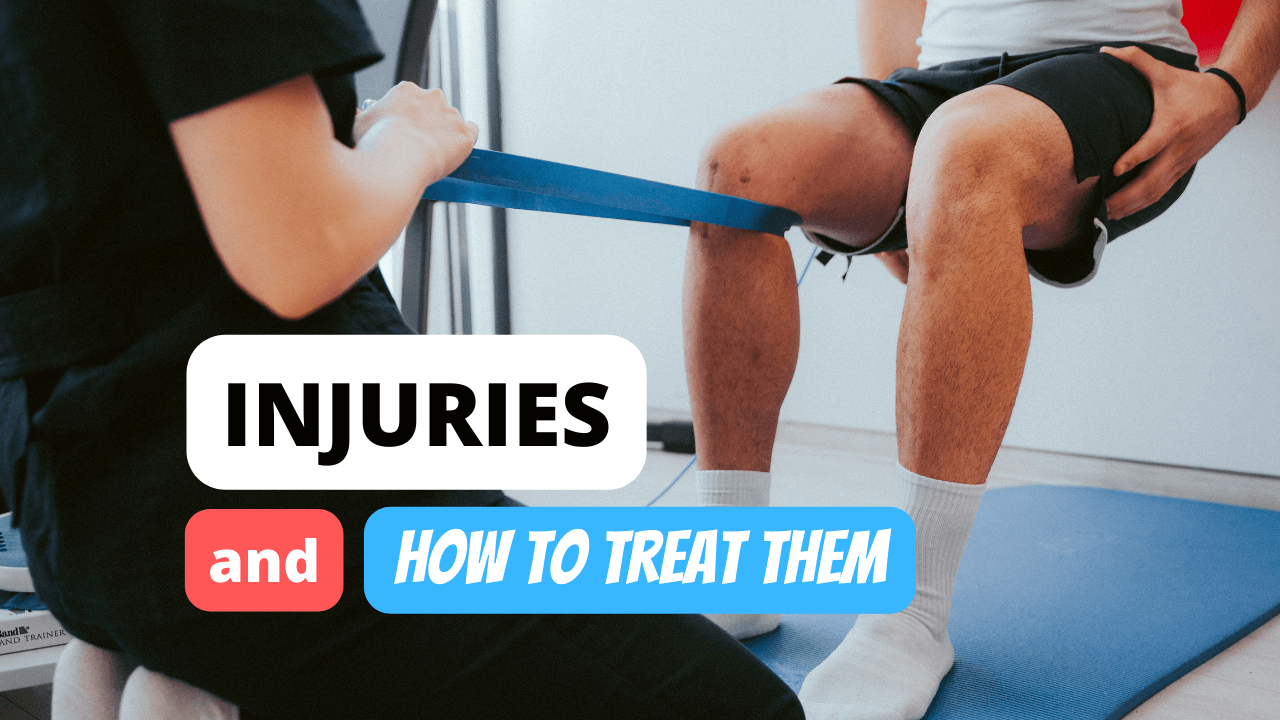If you’re new to fitness and working out at home, getting your nutrition right is crucial for reaching your fitness goals. Whether you’re focused on building muscle, losing weight, or simply improving your overall health, proper nutrition is key. In this guide, we cover the basics of at-home fitness nutrition with practical tips and strategies.
Define Your Fitness Goals
– Weight Loss: To lose weight, create a caloric deficit by consuming fewer calories than you burn. Focus on nutrient-dense foods that help you feel full and energized.
– Muscle Gain: To build muscle, aim for a caloric surplus, emphasizing high-protein foods.
– General Fitness: For overall health, maintain a balanced diet that meets your daily energy needs.
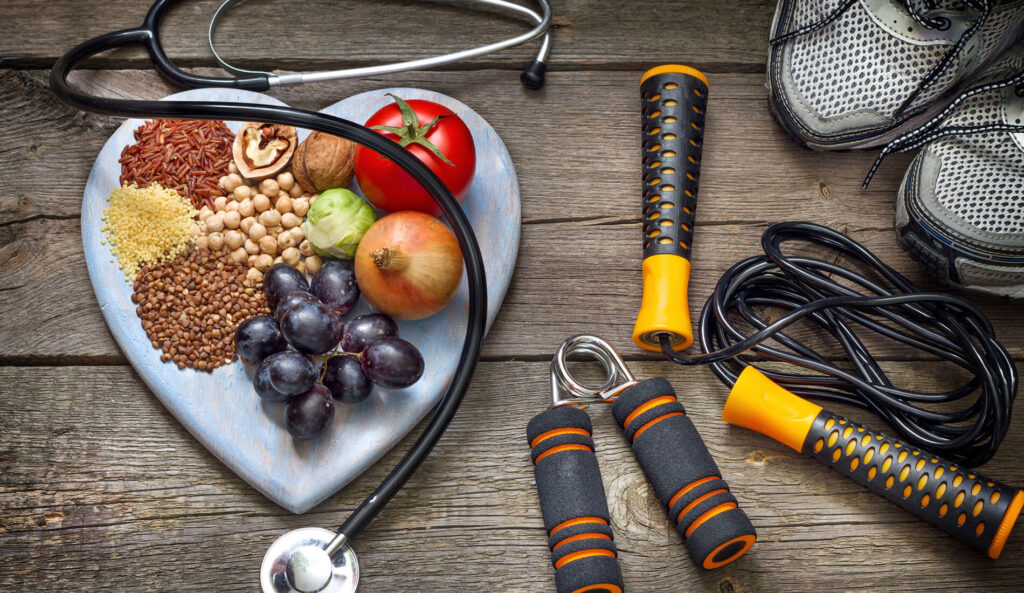
Get Your Macronutrients Right
– Protein for Muscle Growth: Aim for 0.6 to 1 gram of protein per pound of body weight daily to support muscle building and repair. Great sources include chicken, fish, tofu, beans, and eggs.
– Carbohydrates for Energy: Carbohydrates fuel your workouts and daily activities. Opt for complex carbs like whole grains, vegetables, and fruits.
– Healthy Fats: Healthy fats support hormone production and brain function. Include avocados, nuts, seeds, and olive oil in your diet.
Focus on Nutrient-Dense Foods
Nutrient-dense foods provide essential vitamins, minerals, and antioxidants. Include a variety of colorful vegetables and fruits in your meals for a balanced diet.
Example of Nutritious Foods:
– Protein Sources: Chicken breast, salmon, eggs, Greek yogurt, tofu.
– Healthy Carbohydrates: Quinoa, sweet potatoes, brown rice, oats, whole wheat bread.
– Healthy Fats: Avocado, almonds, walnuts, chia seeds, olive oil.
– Vegetables: Spinach, kale, broccoli, bell peppers, carrots.
– Fruits: Berries, bananas, apples.
– Healthy Snacks: Greek yogurt with berries, apple slices with nut butter, hummus with vegetables.
A Comprehensive Guide to Clean Eating: Tips and Meal Plans
Stay Hydrated
Proper hydration is essential for optimal fitness. Drink water throughout the day and especially before, during, and after workouts. Avoid sugary drinks and excessive caffeine.
Plan Your Meals for Success
– Pre-Workout Nutrition: Eat a light meal or snack with carbs and a bit of protein 1-2 hours before exercise. Consider a banana with peanut butter or Greek yogurt with berries.
– Post-Workout Nutrition: Consume a meal with protein and carbohydrates within 30-60 minutes after your workout to aid muscle recovery and replenish glycogen. Protein shakes, chicken with rice, or a balanced meal can work well.
– Regular Meals: Aim for three balanced meals per day with healthy snacks in between.
Here’s an example of a meal plan that illustrates what pre-workout, post-workout, and regular meals might look like to support fitness goals. This plan includes a balance of carbohydrates, protein, and healthy fats to fuel your workouts, support recovery, and maintain energy throughout the day.
Pre-Workout Nutrition:
Timing: 1-2 hours before exercise
– Banana with Peanut Butter: A simple snack combining carbohydrates for energy and a small amount of protein from the peanut butter.
– Greek Yogurt with Berries: A cup of Greek yogurt with a handful of mixed berries. This provides protein and quick carbs to fuel your workout.
– Oatmeal with Fruit: A bowl of oatmeal topped with sliced banana or apple slices. This offers complex carbs for sustained energy during your workout.
Post-Workout Nutrition
Timing: 30-60 minutes after exercise
– Protein Shake: A protein shake with a scoop of protein powder, milk or a milk alternative, and a banana. This is a quick and convenient option to replenish glycogen and support muscle recovery.
– Chicken with Rice and Vegetables: Grilled chicken breast with a serving of brown rice and mixed vegetables. This balanced meal offers protein, carbs, and fiber to aid recovery.
– Tuna Sandwich on Whole Wheat Bread: A tuna salad sandwich made with whole wheat bread, providing protein and complex carbs to help refuel after a workout.
Regular Meals
Breakfast:
– Scrambled Eggs with Vegetables: Scrambled eggs with spinach, tomatoes, and bell peppers. Serve with whole wheat toast for a balanced breakfast.
– Smoothie with Protein Powder: A smoothie with protein powder, banana, and spinach. A nutritious option for a quick breakfast.
Lunch:
– Grilled Chicken Salad: A salad with mixed greens, grilled chicken breast, cherry tomatoes, and avocado. Top with a light vinaigrette.
– Quinoa with Roasted Vegetables: A bowl of quinoa with roasted vegetables like zucchini, bell peppers, and mushrooms.
Dinner:
– Salmon with Sweet Potato and Asparagus: Baked salmon with a side of sweet potato and roasted asparagus. A balanced dinner with protein, healthy carbs, and vegetables.
– Stir-Fry with Tofu and Vegetables: A stir-fry with tofu, broccoli, and bell peppers, served with brown rice or quinoa.
Snacks
– Apple Slices with Almond Butter: A healthy snack with carbs and protein.
– Greek Yogurt with Honey: Greek yogurt topped with a drizzle of honey for a sweet treat.
– Mixed Nuts: A small handful of almonds, walnuts, or mixed nuts for a healthy fat source.
This example meal plan is designed to support fitness goals by providing the right balance of nutrients throughout the day. Adjust portion sizes and ingredients based on your individual needs and goals.
Keep It Simple and Sustainable
Focus on easy-to-prepare meals and snacks that fit your lifestyle. Avoid extreme diets and emphasize moderation, balance, and sustainability.
Track Your Nutrition Progress
Use a food diary or nutrition app to track your daily intake and ensure you’re meeting your goals. Adjust your diet as needed based on your progress and how you feel.
Select the Right Nutrition Tracking Method
Choosing a suitable tracking method is the first step:
– Nutrition Apps: Apps like MyFitnessPal, Cronometer, and Lose It! let you track your food intake quickly and easily. These apps offer large databases of food, barcode scanning for quick entry, and compatibility with fitness trackers.
– Food Diary: If you prefer writing things down, use a physical or digital food diary to record what you eat and drink throughout the day.
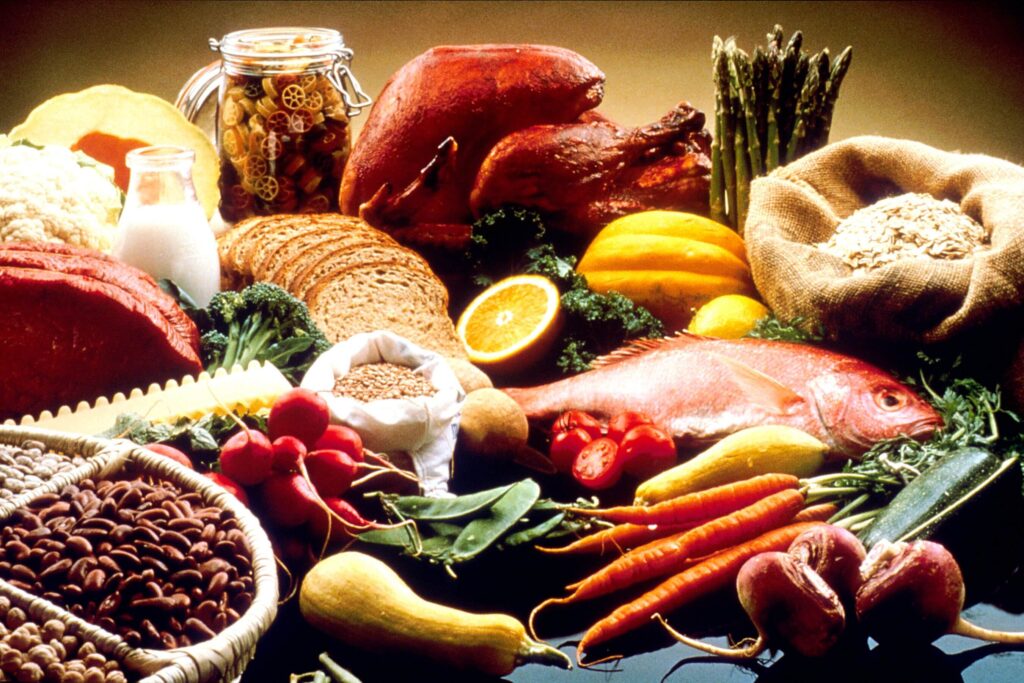
Log What You Eat
To get the most accurate tracking, record all meals and snacks:
– Log Each Meal: Record what you consume after each meal or snack. Include details like serving sizes, cooking methods, and any sauces or condiments.
– Use Barcode Scanning: Most nutrition apps allow you to scan barcodes on packaged foods, providing exact nutritional information.
– Create Custom Foods and Recipes: For homemade meals or foods not in the database, manually enter ingredients and portion sizes. This helps ensure accuracy in your tracking.
Monitor Macronutrient Intake
Understanding your macronutrient intake helps you stay on track with your fitness goals:
– Set Macronutrient Targets: Determine your daily goals for protein, carbohydrates, and fats. Nutrition apps usually allow you to set and track these targets.
– Monitor Macronutrient Balance: As you log your food, ensure you’re meeting your macronutrient goals. Adjust your meals to maintain the right balance.
– Consider Micronutrients: While focusing on macronutrients, don’t forget about essential vitamins and minerals.
Analyze Your Progress
Regularly reviewing your data helps you understand your eating patterns:
– Daily Summaries: At the end of each day, check your total calories and macronutrient intake. This can help you spot patterns, such as consistent overeating or undereating.
– Weekly Reports: Some apps offer weekly summaries that track your nutrition over time. Use this data to identify trends and make changes as needed.
– Set Specific Goals: Establish goals like calorie targets, protein intake, or frequency of meals, and track your progress to stay motivated.
Adjust Your Diet as Needed
As you track your nutrition, be prepared to make adjustments:
– Spot Negative Patterns: Look for recurring issues, such as consuming too many processed snacks or not eating enough protein. Use this insight to improve your diet.
– Implement Gradual Changes: If changes are needed, make them slowly to ensure they are sustainable.
– Seek Professional Guidance: If you’re unsure about your nutritional needs, consult a registered dietitian or nutritionist for personalized advice.
Tips for Successful Nutrition Tracking
– Be Honest and Consistent: Track everything you eat, even if it doesn’t align with your fitness goals. Consistency is key to understanding your eating habits.
– Pre-Log Meals: Before eating, pre-log your meals to ensure they fit within your daily targets. This helps prevent overconsumption.
– Stay Flexible: Don’t worry about occasional indulgences or deviations from your plan. Focus on progress, not perfection.
By following these steps, you can effectively track your nutrition progress and stay on target with your fitness goals. Whether you’re aiming for muscle gain, weight loss, or general health, keeping track of your nutrition can make a significant difference in achieving success.
A Comprehensive Guide to Clean Eating: Tips and Meal Plans
Consider Supplements Wisely
Supplements can be helpful but are not always necessary if you’re following a balanced diet. Common supplements include protein powder, creatine, and multivitamins. Always consult a healthcare provider before adding supplements to your routine.
Find Support for Your Fitness Journey
Support is essential for staying motivated. Share your goals with friends and family, or join online fitness communities to connect with others on a similar journey.
Popular Online Fitness Communities:
– Reddit Fitness Communities: Includes subreddits like r/Fitness, r/HomeGym, and r/BodyweightFitness.
– Fitness Apps with Social Features: MyFitnessPal, Strava, FitOn.
– Specialized Fitness Forums: Bodybuilding.com Forums, SparkPeople Forums.
– Fitness-Based Social Media Groups: Facebook Groups, Meetup.com.
These platforms offer a range of resources to help you succeed with your at-home fitness goals.
Conclusion
Starting your fitness journey at home is an exciting step toward a healthier lifestyle. Consistency and a positive attitude are crucial for success. If you have specific health concerns or dietary restrictions, consult a registered dietitian or healthcare professional for personalized guidance.
Keywords: home fitness, nutrition for beginners, workout nutrition, protein for muscle gain, weight loss diet, healthy eating, pre-workout nutrition, post-workout nutrition, hydration, fitness supplements.





